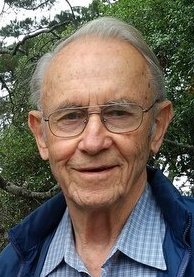With the passing of Douglas P. Murray in April, the National Committee lost a leader, colleague, and friend. Doug joined the National Committee in 1970 as the program director and fairly quickly became the vice president. During that time, he oversaw a major organizational change, triggered by a phone call Doug received in April, 1971 alerting him to the fact that the U.S. Table Tennis Association was looking for a partner to host a reciprocal visit of a Chinese ping pong team to the United States. Up until its sponsorship of that historic visit, the Committee’s sole purpose had been to provide public education about China for various American constituents (the general public, media, educators, Congress, etc.), thereby enabling a broader discussion of American policy toward China. After that pivotal event, the Committee became one of only two U.S. organizations pioneering the Sino-American relationship, by developing an increasingly robust and substantive exchange program with China and running conferences on cutting-edge issues.
Navigating the complexities and politics of the time was not easy, but Doug’s calm strength, his respectful manner, his ability to analyze any situation and come up with the most logical and pragmatic solution, and his sound judgment made him the perfect leader for that transition.
In 1975 he was lured away by Stanford, one of his two much-loved alma maters (the other being Yale) to develop and run its U.S.-China Relations Program. He then went on to head several of the main institutions in the Asia field – all of which benefited greatly from his leadership: East-West Center (vice president), Committee on International Relations Studies with the PRC (founder and executive director), China Institute (president), and Lingnan Foundation (president and chairman). Doug was an institution builder par excellence and the whole field owes him a deep debt of gratitude, as do several environmental institutions in Vermont and New Jersey on whose boards he served and/or chaired and whose goals were personally very important to him.
Yet even when committed to other organizations, Doug always had time for the National Committee. He served on our board for 28 years between 1975 and 2006, during which he was secretary for one year, treasurer for one year, and vice chair for nine years; and he came back to the Committee in 1998 to serve as president pro-tem for a year. Whether he was on or off the board or staff, Doug would generously provide sound, well-reasoned advice and direction whenever asked – and sometimes when he wasn’t!
In addition to holding every senior staff and board role at the Committee other than chair, Doug gave of himself to the organization in more personal ways: he was a firm but caring boss; a beautiful writer and a tough editor; a steadfast, trusted colleague; a wise and caring mentor who set a great example for those he guided; and a wonderful friend.
The Committee owes much to Doug; he will be greatly missed.
Contributions in Doug Murray’s memory will go toward preserving the National Committee’s archives: we are doing so because Doug was so instrumental throughout the organization’s history, his own papers are also stored at the Rockefeller Archive Center, and those who knew Doug know that he kept every scrap of paper that came into view!
